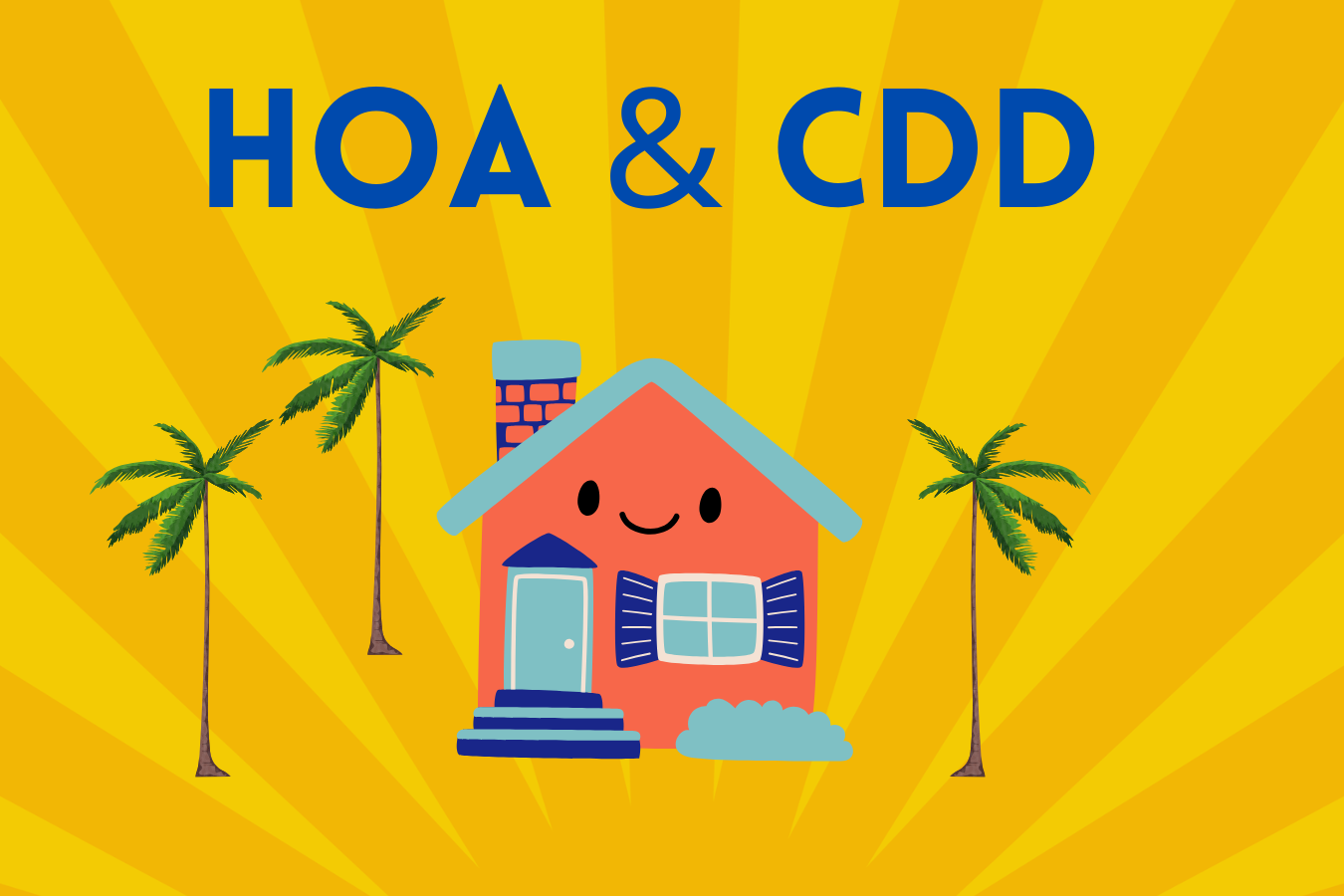Even those of us who live in single-family homes in Florida find ourselves navigating the murky waters of HOA and CDD fees. Gated communities come with lots of great services and amenities, and let’s just say they don’t pay for themselves.
Just remember, every community in Florida is different. Consider this guide nothing but a first date. Get ready to the learn the basics — plus some tips on how to make life easier while paying your dues.
What is an HOA
A Homeowners Association (HOA) is the governing body of your community. Think of it as the disembodied force of every nosy neighbor who’s going to report you for putting up your holiday decorations too soon.
Or, if you want to be more generous, think of it as the council that will make your neighborhood run more smoothly. Your HOA fees may go to things like:
- Landscaping
- Insurance
- Administrative jobs
- Maintenance and repairs to common areas
- Amenities and services
- Reserve funds

Some pro tips for dealing with the HOA
- Do not make enemies with the HOA body if you can avoid it
- Do not break the rules, or you risk losing privileges
- Nominate a mix of busy-savvy and empathetic neighbors to the board of directors, not your friends
- Like everything else in life, expect your HOA fees to go up over the years
How are HOA fees typically paid
HOA fees are not typically tied to your mortgage, so expect to pay them monthly, quarterly, or annually.
Be on the lookout for closing fees related to your HOA as well. My realtor Angie of The Guillette Group jokingly refers to them as “welcome fees.” Welcome to Florida. Show us your wallet.
What is a CDD
A Community Development District (CDD) is considered a special-purpose government entity that serves the long-term needs of a community.
Community developers establish them by taking out bonds to finance construction projects like luxury amenities, infrastructure, and road maintenance. This means, they don’t have to pay for those goodies upfront. Technically, the homeowner pays for them.
CDDs are prevalent in Florida because they play a crucial role in deferring infrastructure costs, allowing new homes to be competitively priced while ensuring residents enjoy well-maintained amenities and a high quality of life. – Vision Group
Local governments like them because it shifts the financial burden to the people who actually benefit from using the services. Your CDD may go to things like:
- Water management and control
- Wastewater management
- Waste collection and disposal
- Conservation areas
- District roads and streetlights
If you have HOA and CDD fees, the CDD will typically cover luxury amenities and community sponsored events.
Things to know when dealing with CDDs
- While the bond portion of a CDD can be paid off over time, the annual maintenance that it covers will continue to cost the homeowner
- While the bond portion is fixed, the maintenance fees will fluctuate every year
- Generally speaking, the more fancy amenities on-site, the higher the CDD fees
- CDD fees are often not transparent on websites like Zillow, so make sure to nag your realtor with lots of questions
- High CDD fees can result in lower home price listings
How are CDD fees typically paid?
CDD fees are collected annually on your Property Tax Bill.


